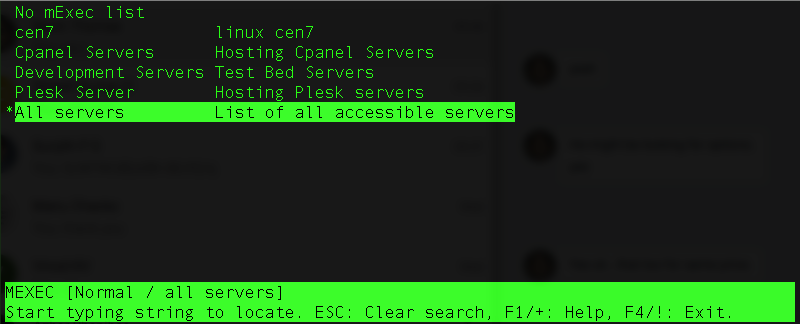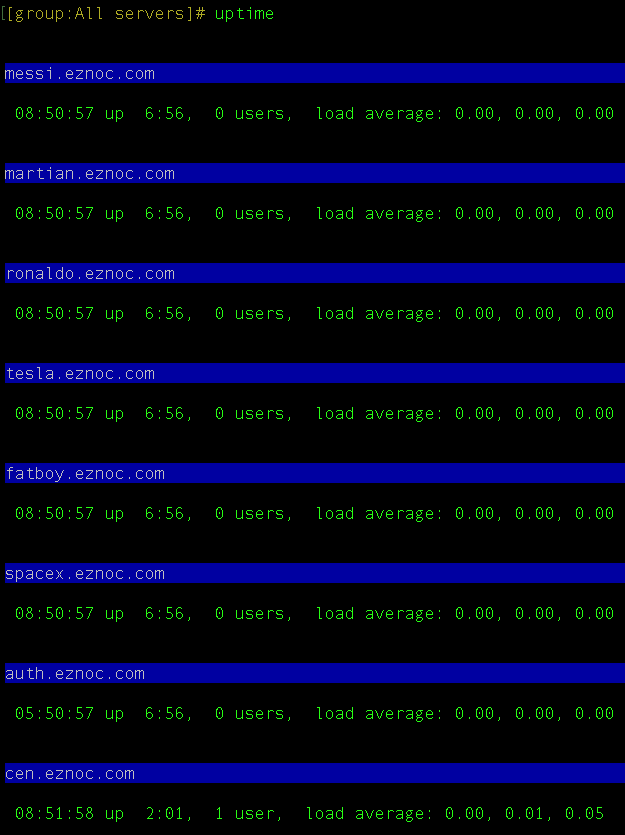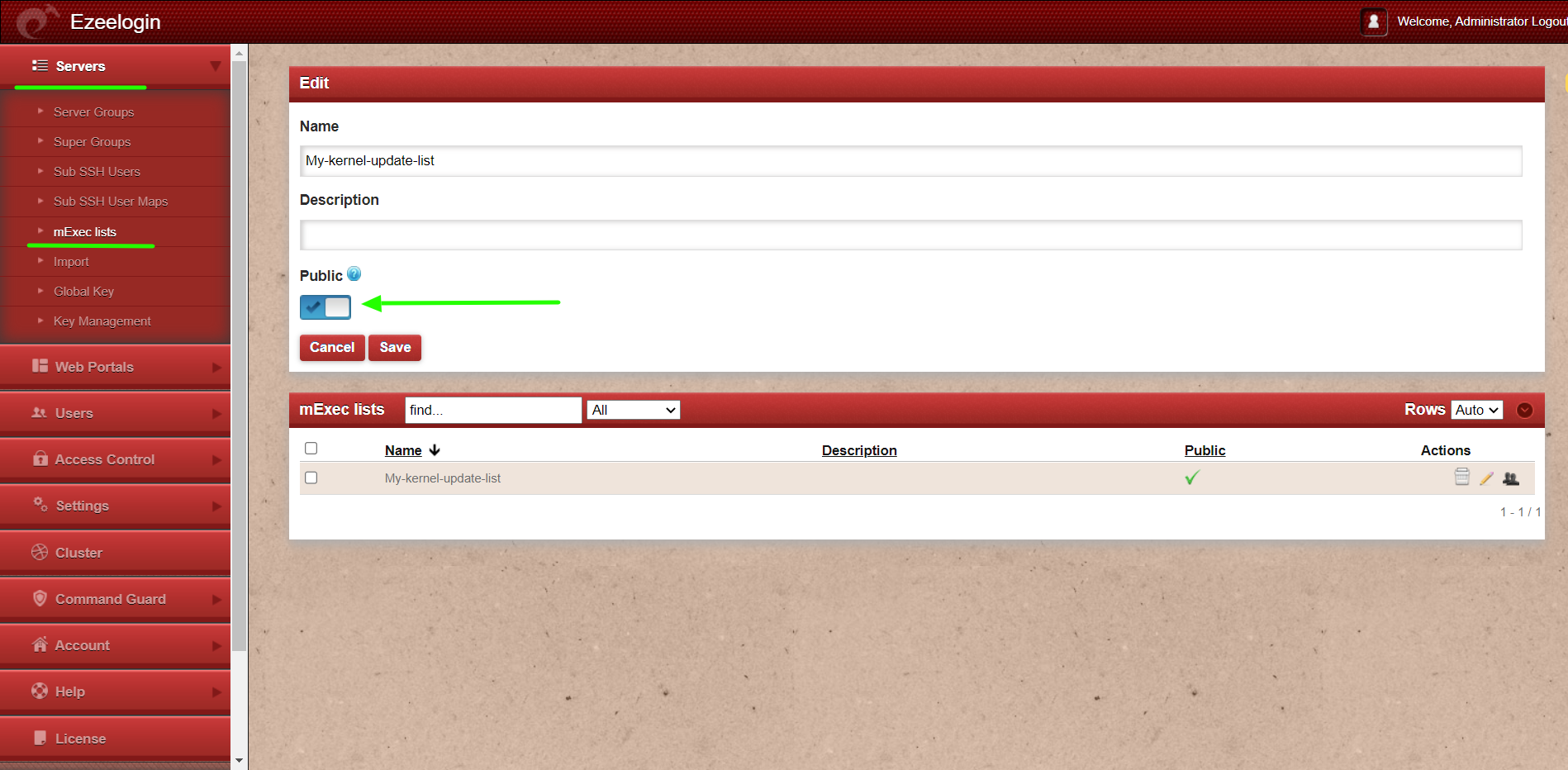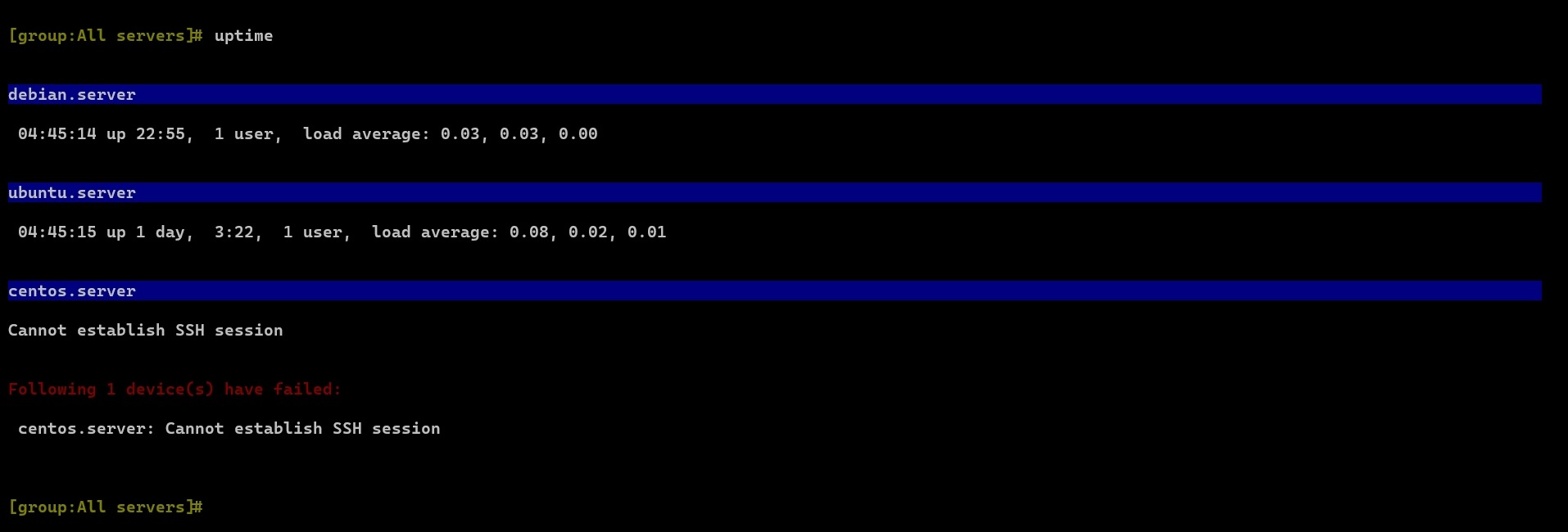Parallel Shell - How to use it?
How to use Parallel Shell feature?
Overview: This article explains how to use parallel shell on the gateway server to execute commands simultaneously on multiple servers. It also covers features like MExec lists and command execution summaries, including exit status explanations.
Parallel shell allows the gateway users to execute commands on multiple servers simultaneously. Users can execute commands on various server groups they have access to or create custom groups of servers (mExec lists) where they want to execute commands.

Ensure that the SSH gateway user has been granted the privilege to use a parallel shell. By default, it's only available for the admin user and this privilege has to be granted explicitly to other users.
Step 1: To access the Parallel Shell, log on to the Ezeelogin backend, and click on the shortcut which is usually f7 or * (Help Menu in the ezsh shell). Once you have the Mexec group listing, navigate to the group of servers where you would like to execute the command. In the example below, the 'All Servers' group has been selected.

Step 2: Press the enter key on the keyboard type the command uptime and press enter again to execute the command on the server group 'All servers'.

Refer to the following: Mexec List Feature.
The MExec lists created would be viewable to other users only if the creator of the list decides to set it as public. If it is not set as public then the users will only be able to view normal server groups.

How to view the summary in a parallel shell?
Step 1: Command successfully executed on all servers:

Step 2: Command failed to execute on some servers, and the summary of the failed servers will be shown:

Step 3: Remote exited with non-zero status explained.

- exit 1: General failure
- exit 2: Misuse of shell builtins (e.g., incorrect syntax)
- exit 126: Command not executable
- exit 127: Command not found
- exit 128: Invalid argument to exit
The view summary feature is available from Ezeelogin version 7.33.0. Refer below article to upgrade to the latest version.